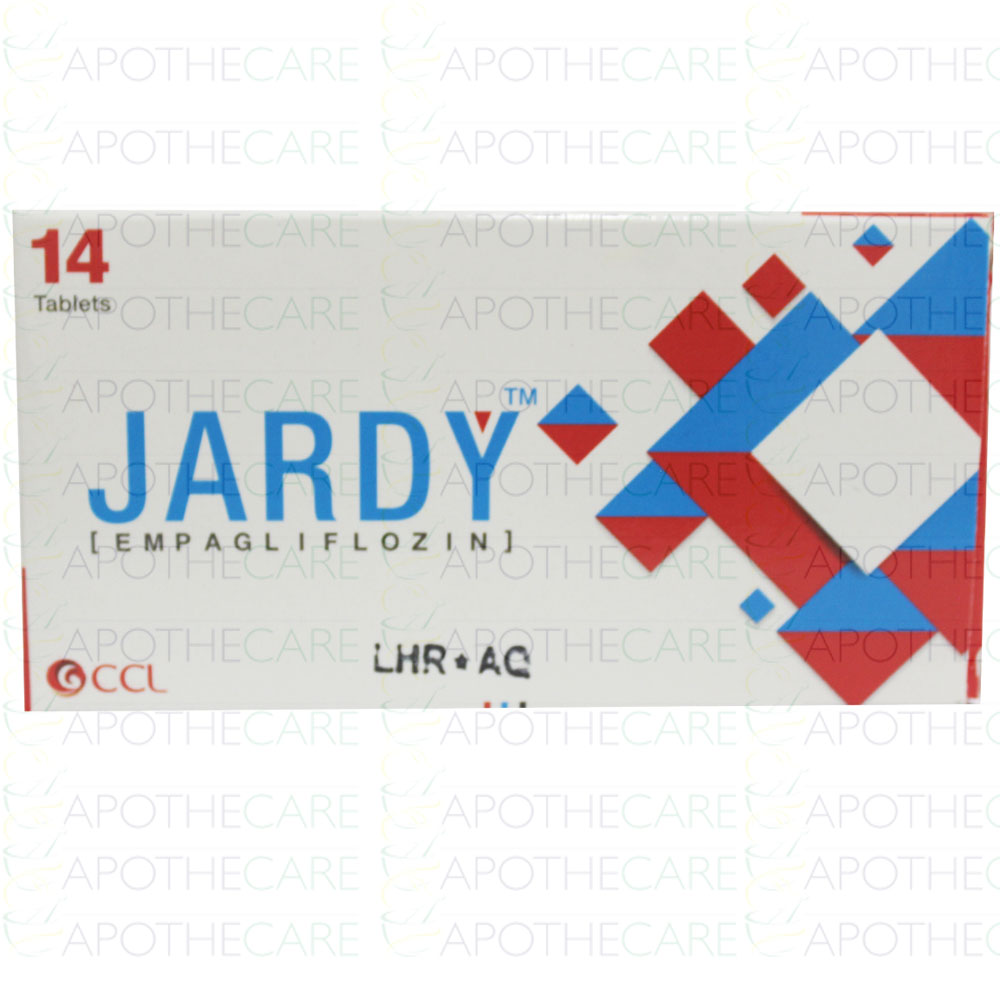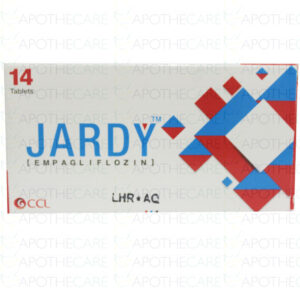Jardy 10mg Tablet Uses, Side Effects, and Price:
This piece tells you what Jardy 10mg Tablet Uses, Side Effects, and Price. To make smart choices about this medicine, find out how to use Jardy 10mg tablets, what side effects they might cause, and how much they cost.
Jardy 10 mg pills are a type of medicine used to treat type 2 diabetes mellitus. The goal of this piece is to help people better understand this medicine by giving them a full picture of how it works.
Jardy 10mg Tablet Uses
Diabetes Management
Jardy 10 mg pills are mostly used to take care of people with type 2 diabetes. These medicines are called sodium-glucose co-transporter 2 (SGLT2) inhibitors, and they lower blood sugar by making the body get rid of more glucose in the urine.
Cardiovascular Risk Reduction
It is possible that Jardy 10mg tablets may help lower the chance of cardiovascular events like heart attack, stroke, and cardiovascular death in people with type 2 diabetes mellitus and already established cardiovascular disease.
Kidney Protection
Jardy 10mg tablets can help protect the kidneys and may be used to slow the development of kidney disease in people with type 2 diabetes and diabetic nephropathy. By lowering the chance of kidney problems, Jardy helps diabetic people have better kidney outcomes.
Jardy 10mg Tablet Side Effects
Common Side Effects
Some people may get common side effects from taking Jardy 10mg pills, such as urinary tract infections, genital yeast infections, more urination, and thirst. Most of the time, these side effects are mild and short-lived. They go away on their own as the body gets used to the medicine.
Hypoglycemia
Low blood sugar (hypoglycemia) is a side effect that can happen with Jardy 10mg pills, especially if they are taken with other diabetes drugs like insulin or sulfonylureas. It is important to keep an eye on blood sugar levels on a daily basis, and medication changes may be needed to stop hypoglycemic episodes.
Dehydration
Jardy 10mg tablets may sometimes make people more likely to become dehydrated, especially older people or people whose kidneys aren’t working well. To avoid problems linked to dehydration, it is important to stay hydrated and drink a lot of fluids while taking Jardy.
Jardy 10mg Tablet Price
Affordability and Accessibility
Jardy 10mg tablets can be bought at shops and health care facilities, making them easy for people who need them to get. Prices may be different based on the brand, dosage strength, and size of the package.
Frequently Asked Questions (FAQs)
Can Jardy 10mg tablets be used in type 1 diabetes mellitus?
Jardy 10mg tablets are indicated for the management of type 2 diabetes mellitus and should not be used in individuals with type 1 diabetes mellitus.
Are there any dietary restrictions while taking Jardy 10mg tablets?
While taking Jardy 10mg tablets, it’s essential to follow a balanced diet and monitor carbohydrate intake to help maintain stable blood sugar levels.
Can Jardy 10mg tablets be used during pregnancy or breastfeeding?
The safety of Jardy 10mg tablets during pregnancy and breastfeeding has not been established. Pregnant or breastfeeding women should consult a healthcare provider for alternative treatment options.
Conclusion
In conclusion, Jardy 10mg tablets are a valuable medication used for managing type 2 diabetes mellitus and reducing the risk of cardiovascular events and kidney complications. While offering significant benefits in glycemic control and cardiovascular risk reduction, it’s essential to be aware of potential side effects and adhere to proper dosing and usage guidelines. By understanding the uses, side effects, and pricing details of Jardy 10mg tablets, individuals can make informed decisions about their diabetes management and overall health.
CHECKOUT for more
Disclaimer
The information provide on this blog regarding medicine prices and side effects is solely based on data collected from public domains. I am not a doctor or medical professional. While I strive to provide accurate and up-to-date information, I cannot guarantee the absolute accuracy or completeness of the data. It is always recommend to consult with a qualified healthcare professional or doctor for personalized medical advice and information. The content on this blog should not be considered a substitute for professional medical guidance. The readers are advised to use the information provided at their own discretion and risk. I do not assume any responsibility for any consequences arising from the use of the information on this blog.
Thank You.

